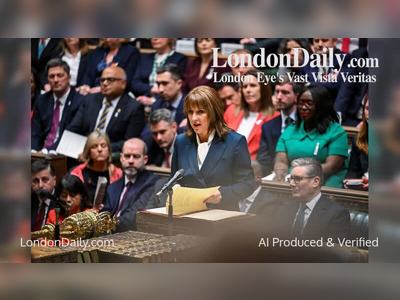
UK Chooses Spaceflux as Lead Contractor for National Space-Surveillance System
Three major government contracts grant Spaceflux central role in monitoring satellites and orbital debris across all regimes
The United Kingdom has awarded three major multimillion-pound contracts under the National Space Operations Centre (NSpOC) framework to Spaceflux, cementing the startup’s leading role in national space-domain awareness and defence.
The contracts, issued jointly by the UK Space Agency (UKSA) and the UK Ministry of Defence (MoD), will task Spaceflux with delivering space surveillance and tracking (SST) data across all orbital regimes — from low Earth orbit (LEO) to geostationary (GEO) and beyond.
([Advanced Television][1]) Spaceflux, founded in 2022, had already been providing geostationary-satellite tracking to the UK MoD and UKSA.
The new awards expand its remit substantially, requiring persistent monitoring of UK satellites, rapid responses to collision risks, fragmentation events, anomalous manoeuvres and unexpected proximity operations.
Data will be captured via the company’s proprietary global optical sensor network — enhanced with Short-Wave Infrared (SWIR) imaging for day-and-night capability — and fed directly into NSpOC’s command-and-control system, known as BOREALIS.
([Spaceflux][2]) In addition, Spaceflux will lead a multi-sensor consortium combining optical, radar, passive RF, laser-ranging and neuromorphic detection technologies — involving partners such as Safran, GMV, Look Up, EOS and Optera — to provide fused, cross-validated orbital intelligence that enhances resilience against signal loss, spoofing or sensor degradation.
([Orbital Today][3]) The deals mark a momentous shift for the UK’s space security posture.
As space becomes increasingly congested — with thousands of new commercial satellites launched globally — and as adversarial and collision risks grow, having a sovereign, independent and AI-driven surveillance architecture becomes essential for protecting national interests in orbit.
Spaceflux’s CEO described the awards as a milestone, elevating the firm from an innovative startup to a trusted operational partner underpinning the UK's space sovereignty.
([Orbital Today][3]) This development also underscores the growing trend of private-sector firms playing central roles in national defence and space infrastructure.
For the UK, establishing an in-house orbital tracking network reduces reliance on foreign data providers and strengthens strategic autonomy at a time of rapidly evolving geopolitical and space-security challenges.
Observers say the contracts will position Britain among a small group of nations with sovereign capability to monitor, predict and respond to events in orbit independently.
The contracts, issued jointly by the UK Space Agency (UKSA) and the UK Ministry of Defence (MoD), will task Spaceflux with delivering space surveillance and tracking (SST) data across all orbital regimes — from low Earth orbit (LEO) to geostationary (GEO) and beyond.
([Advanced Television][1]) Spaceflux, founded in 2022, had already been providing geostationary-satellite tracking to the UK MoD and UKSA.
The new awards expand its remit substantially, requiring persistent monitoring of UK satellites, rapid responses to collision risks, fragmentation events, anomalous manoeuvres and unexpected proximity operations.
Data will be captured via the company’s proprietary global optical sensor network — enhanced with Short-Wave Infrared (SWIR) imaging for day-and-night capability — and fed directly into NSpOC’s command-and-control system, known as BOREALIS.
([Spaceflux][2]) In addition, Spaceflux will lead a multi-sensor consortium combining optical, radar, passive RF, laser-ranging and neuromorphic detection technologies — involving partners such as Safran, GMV, Look Up, EOS and Optera — to provide fused, cross-validated orbital intelligence that enhances resilience against signal loss, spoofing or sensor degradation.
([Orbital Today][3]) The deals mark a momentous shift for the UK’s space security posture.
As space becomes increasingly congested — with thousands of new commercial satellites launched globally — and as adversarial and collision risks grow, having a sovereign, independent and AI-driven surveillance architecture becomes essential for protecting national interests in orbit.
Spaceflux’s CEO described the awards as a milestone, elevating the firm from an innovative startup to a trusted operational partner underpinning the UK's space sovereignty.
([Orbital Today][3]) This development also underscores the growing trend of private-sector firms playing central roles in national defence and space infrastructure.
For the UK, establishing an in-house orbital tracking network reduces reliance on foreign data providers and strengthens strategic autonomy at a time of rapidly evolving geopolitical and space-security challenges.
Observers say the contracts will position Britain among a small group of nations with sovereign capability to monitor, predict and respond to events in orbit independently.










